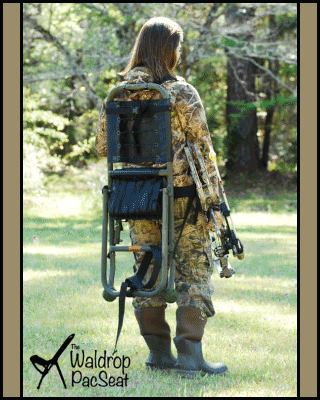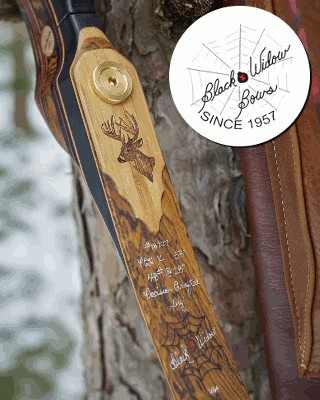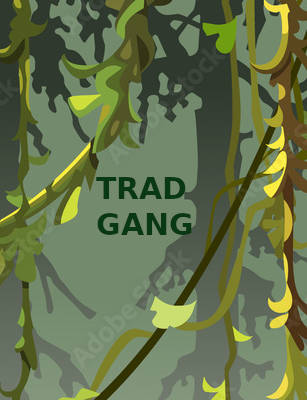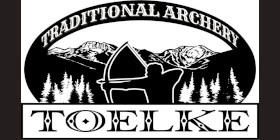Another story that may offer some help...
http://forum.pafoa.org/hunting-23/16308-sunday-hunting-article.html Sportsmen looking to add seventh day
By Bob Frye
TRIBUNE-REVIEW OUTDOORS EDITOR
Sunday, January 13, 2008
Joe Zuzich admits to being "kind of bit by the bug."
Forty-six years old, he started hunting when he was 12. Since then, he's traveled West to hunt elk and mule deer, to Newfoundland to hunt moose and into the woods for Opening Day of Pennsylvania's own white-tailed deer season 34 of the last 35 years.
Now, though, with his 7-year-old son Joe expressing an interest in hunting, he's worried.
The pace of society has accelerated. People are working longer hours and more days. Organized sports, video games and other attractions are competing for children's time.
And yet, Pennsylvania's ban on hunting on Sundays -- which dates to 1873 -- remains in place, limiting opportunities for working sportsmen to take the next generation of kids afield. That's got to change if hunting is to survive, Zuzich said.
"Any step toward legalizing Sunday hunting would be a step in the right direction, in my opinion. It's kind of like we're a couple of years behind the rest of the country," said Zuzich, a Level Green resident and president of the Sportsmen's Association of Greensburg.
A couple of national organizations agree and plan to do something about it.
The U.S. Sportsmen's Alliance and the National Shooting Sports Foundation are organizing a grassroots informational campaign aimed at legalizing Sunday hunting in Pennsylvania. It's expected to launch during the first quarter of 2008.
The reason for the push is simple: hunters, while still a vital part of the economy, are declining in number as the baby boomers leave the ranks. A survey found that for every 100 hunters lost nationally, only 69 new ones are taking their place. In Pennsylvania -- one of the nation's strongest hunting states but also one of its oldest -- just 62 hunters are being recruited for every 100 who leave.
One of the main reasons hunters cite for packing away their guns is a lack of time to get in the woods, said Chris Dolnack, senior vice president of the Shooting Sports Foundation. That's where Sundays come in.
"If we're going to get more interest in hunting and increase participation, we've got to remove barriers and increase opportunities. And probably the single greatest opportunity we have to expand hunting for this generation is Sunday hunting," Dolnack said.
Adding it to the menu may be tough, however.
Pennsylvania's ban on Sunday hunting is a remnant of the state's "blue laws," which once made it illegal to buy groceries, get gas, go to the movies or even fish on Sundays. Today, it remains one of the most restrictive bans of its kind in the nation.
Forty-one of the 50 states allow hunting on Sundays for all species year round. All of the so-called "big eight" hunting states -- those that sell 500,000 or more hunting licenses annually -- fall into that group except Pennsylvania. Here, hunters can chase coyotes, foxes and crows on Sundays, but everything else is off limits.
Yet, previous efforts to bring Pennsylvania into line with most of the rest of the country have failed. As recently as 2005, a Pennsylvania Legislative Budget and Finance Committee study found that 50 percent of state residents supported the idea of legalizing hunting on Sundays. Forty-five percent were opposed, with 5 percent undecided.
Yet, the minority -- led by the Pennsylvania Farm Bureau -- beat back attempts to change the law.
There are a number of reasons why farmers feel as they do, said Dwight Sarver, president of the Bureau's Westmoreland County chapter. Most, though, simply want a day free from worrying about hunters shooting on their land.
"They just feel it might be good to have that one day that's silent," Sarver said.
Opposition to Sunday hunting has come from other quarters, too.
Some have cited religious objections, though, locally, neither the Catholic Diocese of Pittsburgh nor the Pennsylvania Catholic Conference, the public affairs arm for the 10 dioceses in the state, have Sunday hunting "on our radar," said spokeswoman Amy Beisel.
Trinity Lutheran Church in Butler has never discussed the issue either, said senior pastor Tom Pierotti, a hunter himself. Personally, he doesn't favor Sunday hunting, but he doesn't fear it either.
"I'm not going to get too excited about it one way or the other. I think people will still go to church if it's important to them," Pierotti said.
Hikers, horseback riders, birders and others who share the woods with hunters six days a week have also spoken out against giving up their exclusive right to Sundays. Their concern is primarily safety, said Dave Mottorn of Murrysville, an avid hiker from the Allegheny Group of the Sierra Club.
But -- given that many of the Allegheny Group's hikes run across state game lands that were bought and paid for by hunters -- he could compromise, he said.
"The fact is, hunters pay the bills," he said. "You don't have to buy a hiking license in Pennsylvania, but you do have to buy a hunting license. So, while I'd rather not deal with the danger, I guess we could coexist with hunters."
The most damning opposition to Sunday hunting, then, has come from some sportsmen themselves. For every Joe Zuzich who wants it legalized, there's a Frank Gray who doesn't.
Gray, a 67-year-old resident of Allegheny Township and president of the Vandergrift Sportsmen's Association, believes that hunting "is dying a slow death." Yet, he worries that any move to allow Sunday hunting will push farmers to post their land while robbing wildlife of a day of rest.
He's not sure that Sunday hunting will convince kids to leave their other activities and rush for the woods either.
"The kids can't be everywhere is, I guess, what I'm trying to say," Gray said. "I don't think you'd get a whole lot more by adding Sundays."
Those feelings remain common among a lot of hunters, said Melody Zullinger, executive director of the 100,000 member Pennsylvania Federation of Sportsmen's Clubs. That's changing a little: once ardently anti-Sunday hunting, the Federation's membership is now split almost evenly on the issue. But without a clear majority clamoring for Sunday hunting, it's easy to see why lawmakers haven't acted.
"They just don't want to take the heat by backing it if it's not obvious people want it," Zullinger said.
State Rep. Ed Staback, the Lackawanna County Democrat who chairs the House Game and Fisheries Committee, agreed. He's the author of a bill that would give the Pennsylvania Game Commission the authority to include Sundays in its hunting seasons.
But he has no plans to push it or any other Sunday hunting legislation until he's "reasonably sure" sportsmen have convinced his fellow lawmakers that the time is right, he said.
"If the hunters in the commonwealth do not get behind the concept, and move it forward, it's just not going to happen," Staback said.
Some sportsmen are already mobilizing. The state chapter of the National Wild Turkey Federation has always supported Sunday hunting as a recruitment and retention tool and is preparing to get behind this effort, said president Gene Alwine of Davidsville in Somerset County.
Hopefully, more sportsmen will see how crucial Sunday's are to perpetuating hunting's traditions and come around, said Rob Sexton, vice president for government affairs for the Sportsmen's Alliance.
"Unless we can get good support from within our own community, we don't even need to worry about state lawmakers or non-hunters of anyone else," Sexton said.
"If this is going to have a chance of getting done, we're going to have to appeal to those people who care about hunting's future."
It's not just a Pennsylvania thing
Pennsylvania is far from unique in looking at Sunday hunting.
Within the last half dozen years, a number of states -- including Ohio, New York and Michigan -- have approved hunting on Sundays year round. West Virginia approved Sunday hunting on private lands; Maryland approved it in certain counties during the firearms and archery deer seasons.
In Maryland, things have gone well. Sunday hunting is gaining public acceptance while allowing hunters to take an additional 2,500 to 3,000 deer annually, said Brian Eyler, deer project leader for the Department of Natural Resources.
"I mean, that may not sound like much, but in some counties, that's 5 percent of the harvest, so it can be a pretty substantial number really," Eyler said.
In Ohio, though, there's also been unhappiness. The Ohio Farm Bureau -- long the state's staunchest opponent of Sunday hunting -- backed off that stance in return for two promises from the Ohio Division of Wildlife: to reduce deer numbers and to step up enforcement of trespassing laws.
Six years later, most farmers aren't satisfied with the trade, said Larry Gearhardt, director of local affairs for the Farm Bureau.
"My personal opinion is that we did not get what we bargained for," he said. "I can understand the logic behind Sunday hunting, but in hindsight we should have demanded some specific percentage reduction in the size of the deer herd in return for our support."
North Carolina's Wildlife Resources Commission, meanwhile, considered pushing for a repeal of that state's ban on Sunday hunting just last year. When surveys showed that a majority of hunters and the general population didn't support it, though, the idea was dropped, said Dain Palmer, a human dimensions biologist for the North Carolina WRC.
"In our minds, we could adjust hunting seasons to accommodate Sundays, but it's a question of whether people want it," Palmer said.
By the numbers/digits:
• $626,646,755: The net boost to the state economy, in dollars, if Pennsylvania would allow Sunday hunting in all seasons year-round.
• 1,006,293: Number of hunting licenses sold in Pennsylvania in 2005. That ranked the state second in the country, behind only Texas (1,039,709) and in front of third-ranked Michigan (789,244).
• 5,306: Number of jobs that would be created in Pennsylvania if unlimited Sunday hunting were legalized.
• 18: Percentage of landowners responding to a survey who said they would post their property against all hunting if Sundays were added to the seasons.
• 7: Additional number of days the typical sportsmen would hunt in Pennsylvania if Sunday hunting were legalized year round.
Sources: U.S. Fish and Wildlife Service; Pennsylvania Legislative Budget and Finance Committee.



















